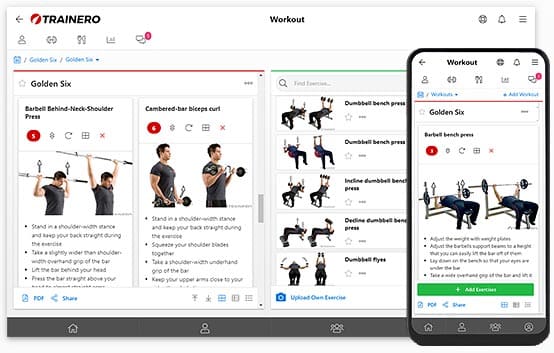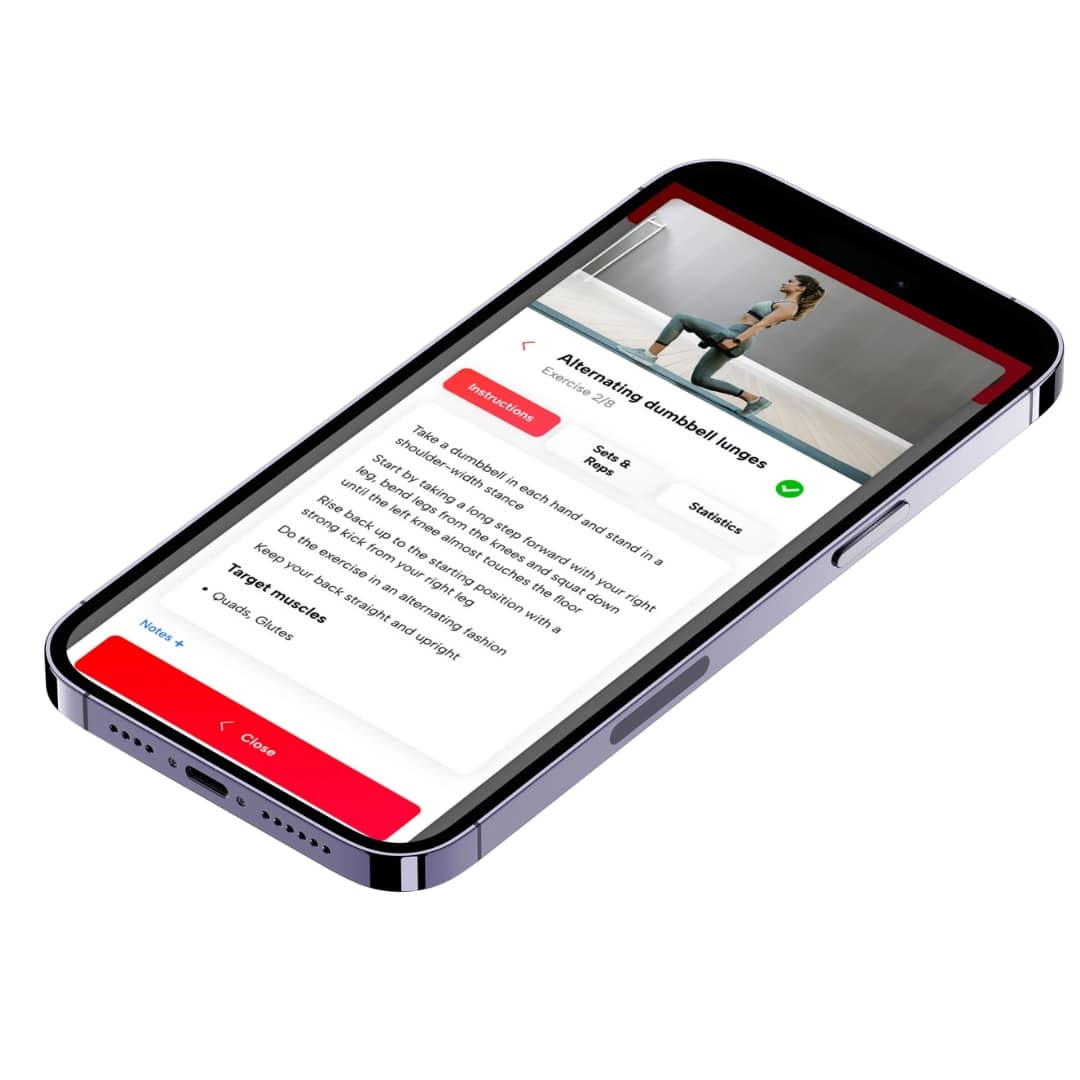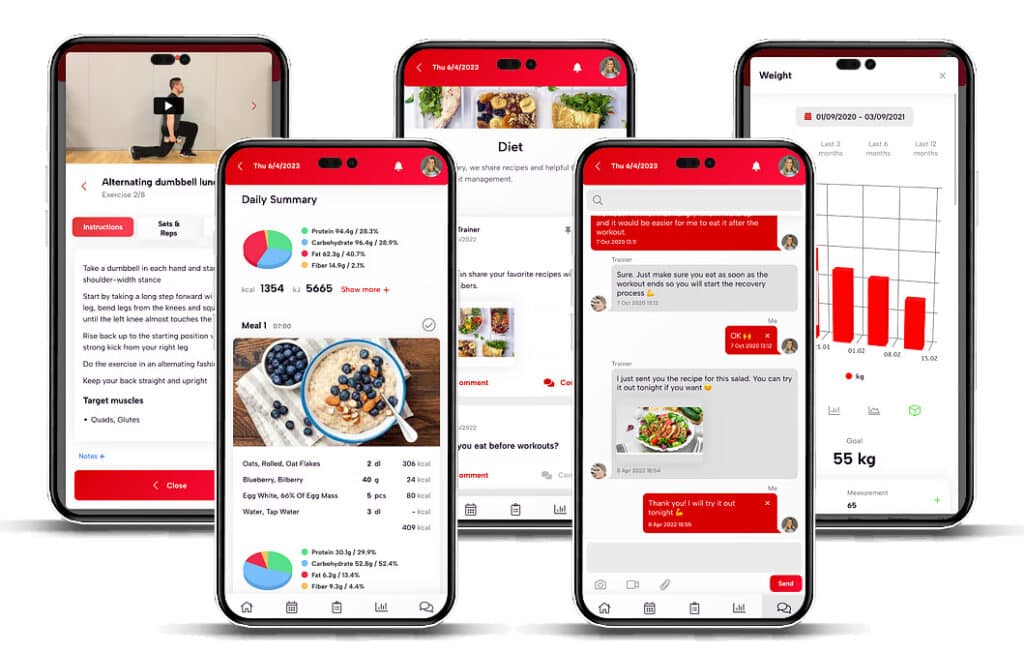Streamline Your Fitness Business: Software for Personal Trainers & Coaches
Streamlining your fitness business has become essential for personal trainers and coaches aiming for growth and efficiency. The right personal trainer software can significantly enhance how you manage your clients, automate business operations, and ultimately drive your personal training business forward. This article delves into the various facets of personal training software, how it can enhance client experience, and best practices for effectively incorporating these tools into your fitness journey.

Unlock your fitness potential with Trainero! Get a 14-day free trial and access personalized workout plans, expert coaching, and progress tracking—all in one app. No commitments, just results. Start your free trial today and take your fitness journey to the next level!

What is Personal Trainer Software and How Can It Streamline Your Fitness Business?
Understanding Personal Trainer Software
Personal trainer software is a specialized platform designed to assist trainers and coaches in managing their fitness business efficiently. This innovative software offers a plethora of features that facilitate the creation of training programs, scheduling sessions, tracking client progress, and automating various business operations. By utilizing personal training software, trainers can focus on delivering high-quality training while streamlining their administrative tasks. The software often integrates with mobile apps, allowing trainers and clients to access important information on-the-go, enhancing the overall fitness experience.
Key Features of Personal Training Software
When considering personal training software, it’s crucial to understand its key features. Most platforms offer customizable workout plans tailored to each client’s fitness level and goals. Additionally, personal training software typically includes scheduling tools that allow trainers to set appointments effortlessly. Clients also benefit from in-app messaging systems, which facilitate effective communication between trainers and clients. Other essential features include client profiles that track progress, payment processing systems for easy invoicing, and calendar integrations that help manage appointments seamlessly. These features work together to create a cohesive and streamlined experience for both trainers and clients.
How Software Helps Automate Business Operations
Automation is a game-changer in the fitness industry, and personal trainer software excels in this area. By automating business operations at your gym or fitness studio, you can save time and reduce the potential for errors. Features such as automated reminders for upcoming sessions, follow-up messages after training, and scheduling notifications help keep both trainers and clients organized. Moreover, automating payment processes ensures a seamless financial transaction experience, allowing trainers to focus on their clients rather than administrative tasks. This level of automation not only streamlines your fitness business but also enhances client satisfaction, fostering long-term relationships.
How Can Personal Training Software Enhance Client Experience?
Customized Workout Plans for Clients
One of the standout benefits of using personal training software is the ability to create customized workout plans for clients. These tailored training programs can accommodate individual fitness levels, preferences, and goals, allowing trainers to personalize their approach effectively. This customization is vital for client engagement, as it ensures that each workout is relevant and motivating. By using software to manage training plans, trainers can easily adjust workouts based on client feedback and progress, ensuring ongoing improvements throughout the client’s fitness journey.
Scheduling and Reminders for Clients
Scheduling is a critical aspect of personal training, and software can greatly enhance this experience. Personal trainer software typically includes robust scheduling features that allow clients to book sessions directly through the app or platform. This convenience not only makes it easier for clients to manage their commitments but also reduces the likelihood of missed sessions. Additionally, automated reminders sent via in-app messaging or email ensure that clients stay informed about their upcoming appointments, reinforcing their commitment to their fitness goals and maintaining engagement with their trainer.
In-App Messaging for Effective Communication
Effective communication is vital in the trainer-client relationship, and personal training software often includes in-app messaging capabilities. This feature allows trainers and clients to communicate seamlessly, whether it’s to discuss training plans, provide feedback, or simply check in on progress. By facilitating direct communication, trainers can address client concerns promptly, celebrate milestones, and maintain motivation. This level of engagement is crucial, as it enhances the overall client experience and contributes to positive outcomes in their fitness journey.
What Are Best Practices for Using Personal Trainer Software?
Integrating Training Apps into Your Business
Integrating training apps into your business is essential for maximizing the benefits of personal training software. Trainers should choose software that aligns with their specific needs and the preferences of their clientele. This involves assessing the features that will most effectively streamline operations, such as client management tools, workout tracking, and payment processing. By carefully selecting and integrating the right software into their business model, trainers can enhance efficiency and provide a superior experience for their clients, ultimately helping to grow their personal training business.
Automating Payments and Invoicing
Automating payments and invoicing is another best practice when using personal trainer software. By implementing a reliable payment processing system, trainers can ensure that billing is handled smoothly and efficiently. This automation not only reduces the administrative burden on trainers but also enhances the client experience by providing simple and secure payment options. Clients appreciate the convenience of automated payments, which helps foster trust and encourages timely financial transactions, allowing trainers to focus more on training and less on financial management.
Utilizing Free Trials to Explore Software Options
Before committing to a particular personal training software, it’s wise to utilize free trials to explore various options. Many software providers offer trial periods that allow trainers to test out the features and usability of their platforms. This practice enables trainers to assess which software best meets their needs before making a financial commitment. By experimenting with multiple platforms, trainers can identify the right software that aligns with their business objectives and ultimately helps streamline their fitness business operations.
How to Use Online Personal Training Software to Grow Your Business?
Expanding Your Reach with Online Training
Online personal training is rapidly gaining popularity, and utilizing online personal training software can significantly expand your reach. By offering virtual training sessions, trainers can connect with clients from various geographical locations, tapping into a broader market. This flexibility not only attracts new clients but also accommodates existing clients who may prefer online sessions due to their busy schedules. By incorporating online training components, trainers can effectively grow their personal training business and adapt to the evolving fitness landscape.
Marketing Your Online Personal Training Services
To successfully grow your online personal training business, robust marketing strategies are essential. Utilizing social media platforms, fitness business blogs, and email marketing campaigns can help promote your services to potential clients. Creating engaging content that showcases your expertise and the benefits of your training programs can attract new clients and build your brand. Additionally, leveraging client testimonials and success stories can further enhance your credibility and drive interest in your online personal training offerings.
Tracking Client Progress with Online Platforms
One of the key advantages of online personal training software is the ability to track client progress effectively. Most platforms include features that allow trainers to monitor workouts, assess performance metrics, and provide feedback directly within the app. By maintaining detailed client profiles and documenting progress, trainers can celebrate achievements and make informed adjustments to training plans. This level of tracking not only motivates clients but also reinforces their commitment to their fitness journey, making them more likely to continue their training with you.
What Tools Can Help Streamline Fitness Business Operations?
Choosing the Right Fitness Business Management Tools
Selecting the right fitness business management tools is crucial for streamlining operations. Trainers should consider software that encompasses all necessary functionalities, from client management and scheduling to payment processing and workout tracking. The right tools will not only enhance efficiency but also improve client satisfaction. By evaluating the features and benefits of various software options, trainers can choose the right platform that aligns with their business goals and simplifies daily operations.
Automating Scheduling and Follow-Up Processes
Automating scheduling and follow-up processes can drastically improve the efficiency of your fitness business. By leveraging personal trainer software that includes these features, trainers can reduce manual work and minimize scheduling conflicts. Automated reminders for sessions and follow-ups can ensure that both trainers and clients stay on track, enhancing accountability and improving overall client engagement. This level of automation not only streamlines operations but also contributes to a more organized and professional training environment.
Assessing the Impact of Software on Your Fitness Journey
Finally, it’s essential to regularly assess the impact of the software on your fitness journey. This involves evaluating how the software has streamlined your fitness business operations, enhanced client experiences, and supported your growth objectives. By analyzing performance metrics and client feedback, trainers can make informed decisions about future software investments and adjustments in their business model. Continual assessment ensures that trainers remain adaptive and responsive to both client needs and industry trends.










